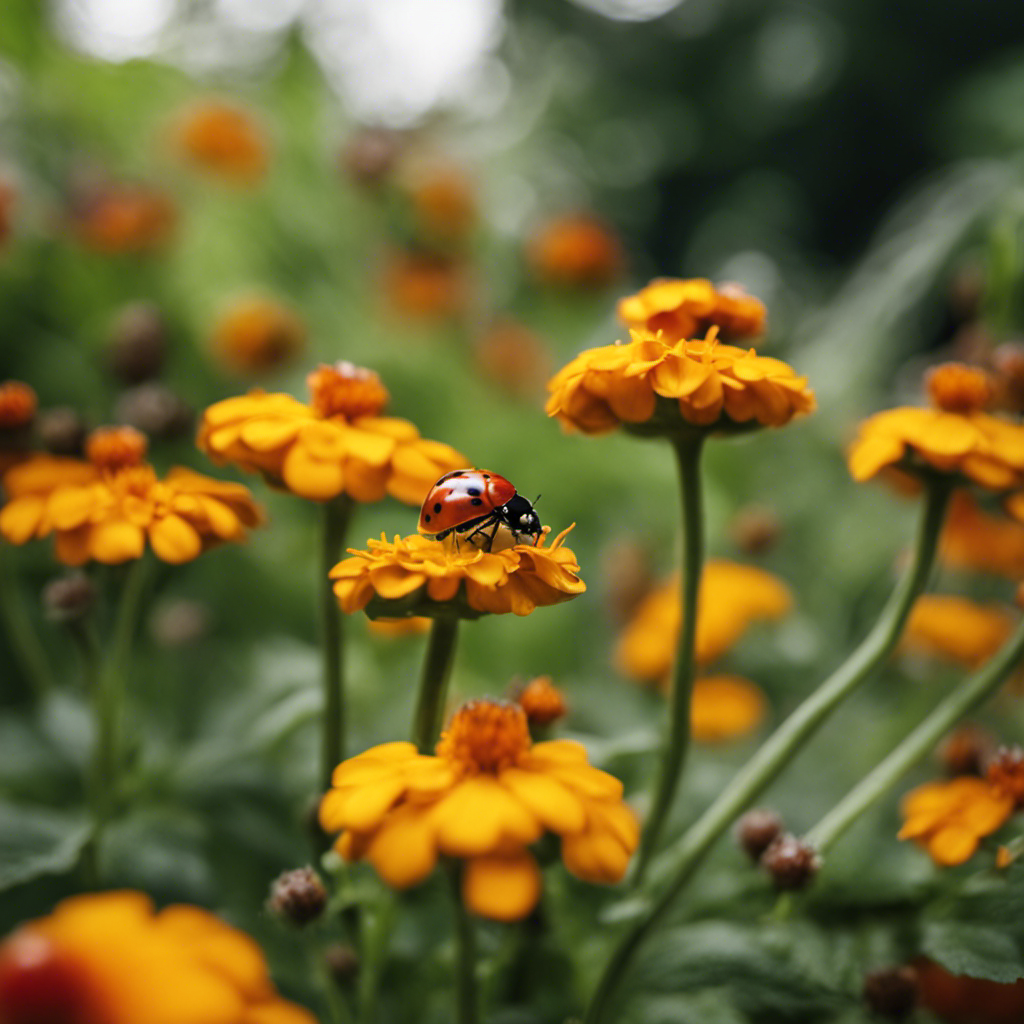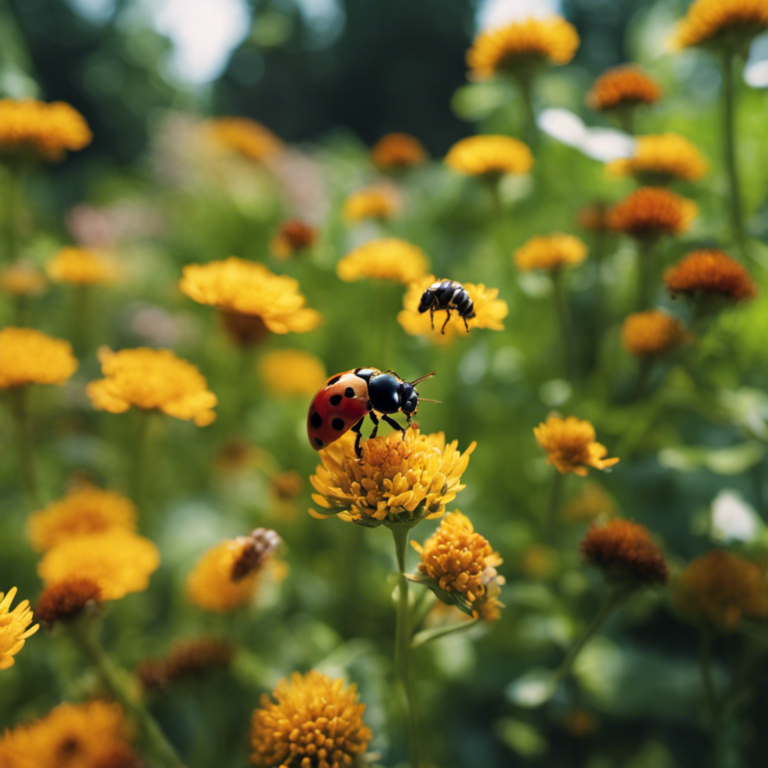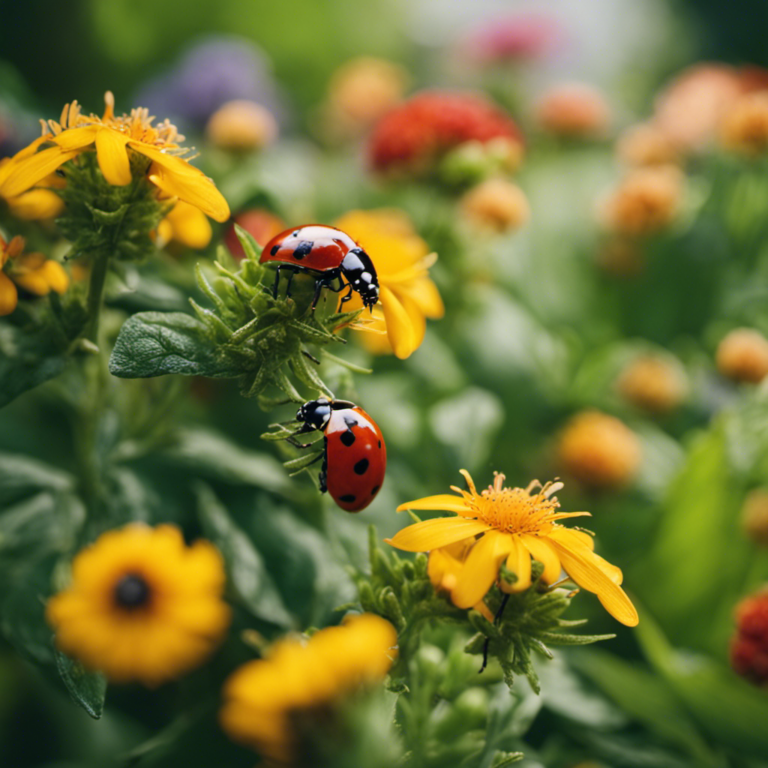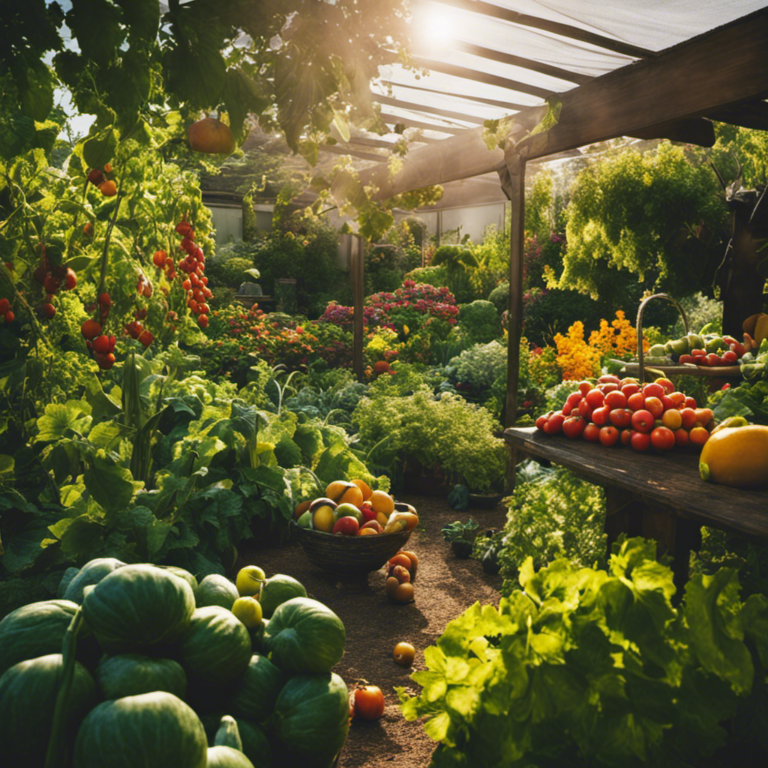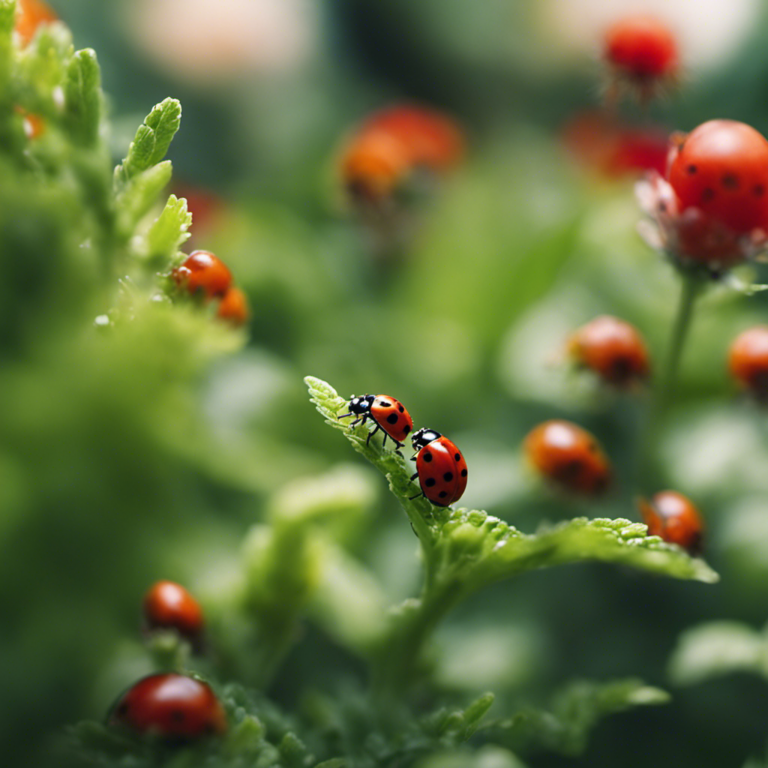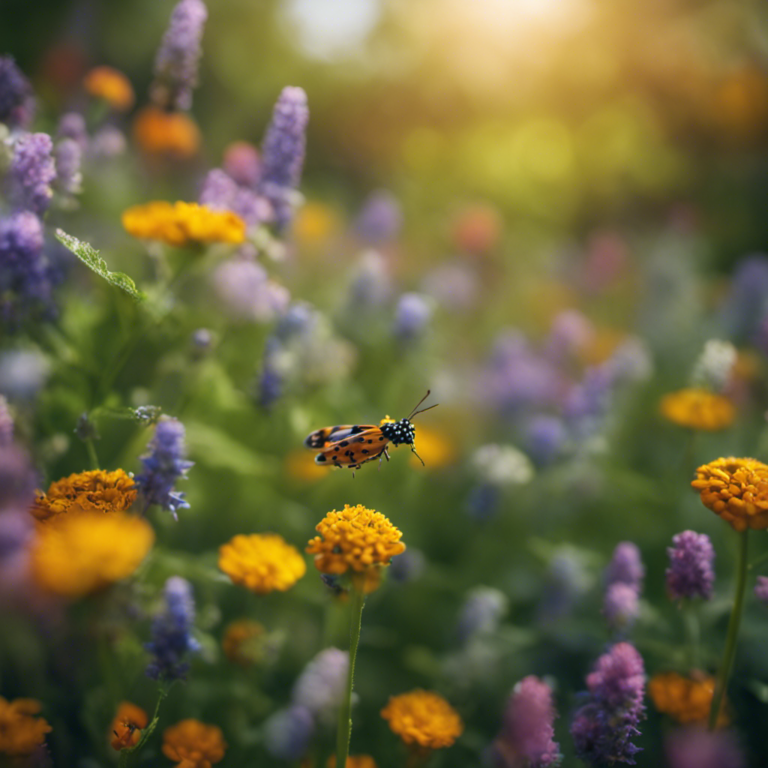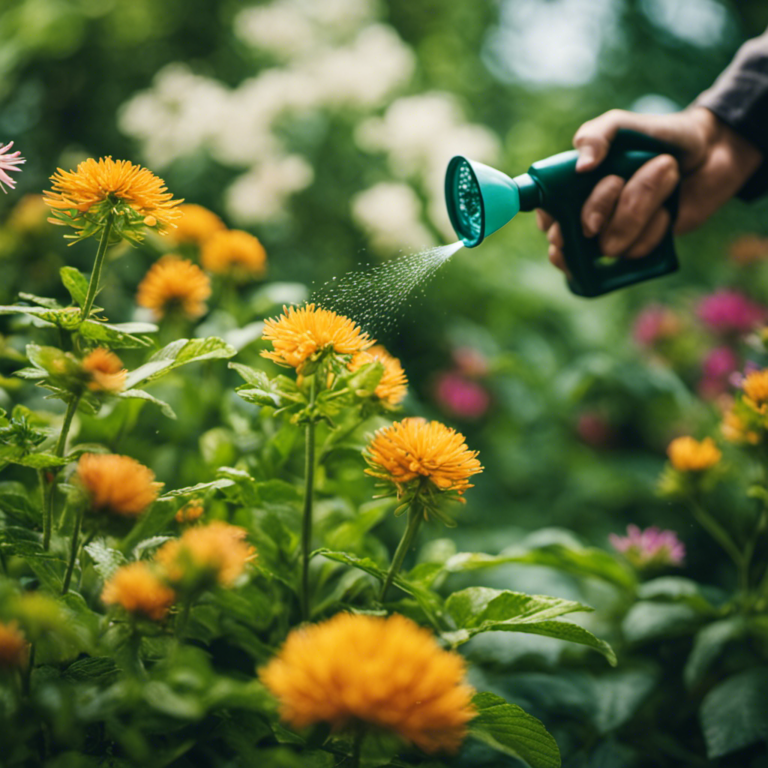Looking for effective ways to control pests in your organic garden? In this article, we’ll explore natural pest control techniques that are safe for your plants and the environment.
From companion planting to beneficial insects, homemade pest repellents to physical barriers, and crop rotation, we have a variety of options to help you keep your garden healthy and pest-free.
Say goodbye to harmful chemicals and hello to a thriving garden filled with healthy plants.
It’s time to take control and protect your organic oasis.
Key Takeaways
Natural pest control techniques are a great way to maintain a healthy and thriving environment for your plants in your organic garden. Did you know that companion planting can increase crop yield by up to 40%? By strategically placing certain plants together, you can deter pests and promote the growth of beneficial insects. These simple and practical methods, such as using homemade pest repellents and physical barriers, can significantly reduce the need for harmful chemicals and promote a sustainable approach to gardening. By embracing natural pest control, you can create a greener and more eco-friendly garden while ensuring the well-being of your plants.
Companion Planting
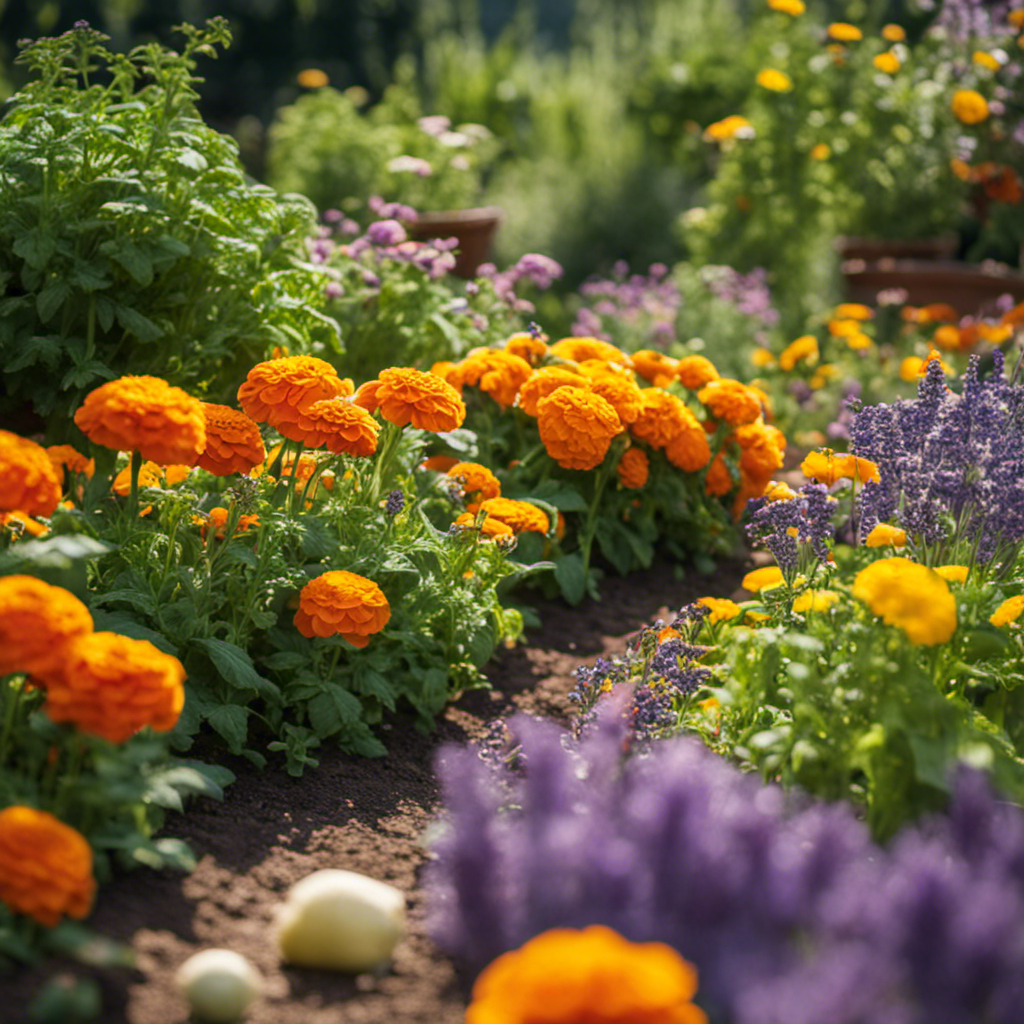
Utilize companion planting techniques to naturally control pests in your organic garden. Companion planting involves planting different types of plants together to benefit each other.
One of the main advantages of this technique is its ability to deter pests. Certain plants, like marigolds and garlic, emit strong odors that repel insects. By intercropping these plants with your main crops, you can create a natural barrier against pests.
Another effective method is succession planting, where you plant crops in a sequence to ensure a continuous harvest and prevent pest buildup. For example, after harvesting the main crop, you can plant fast-growing crops to maximize productivity and minimize pest infestations.
Beneficial Insects
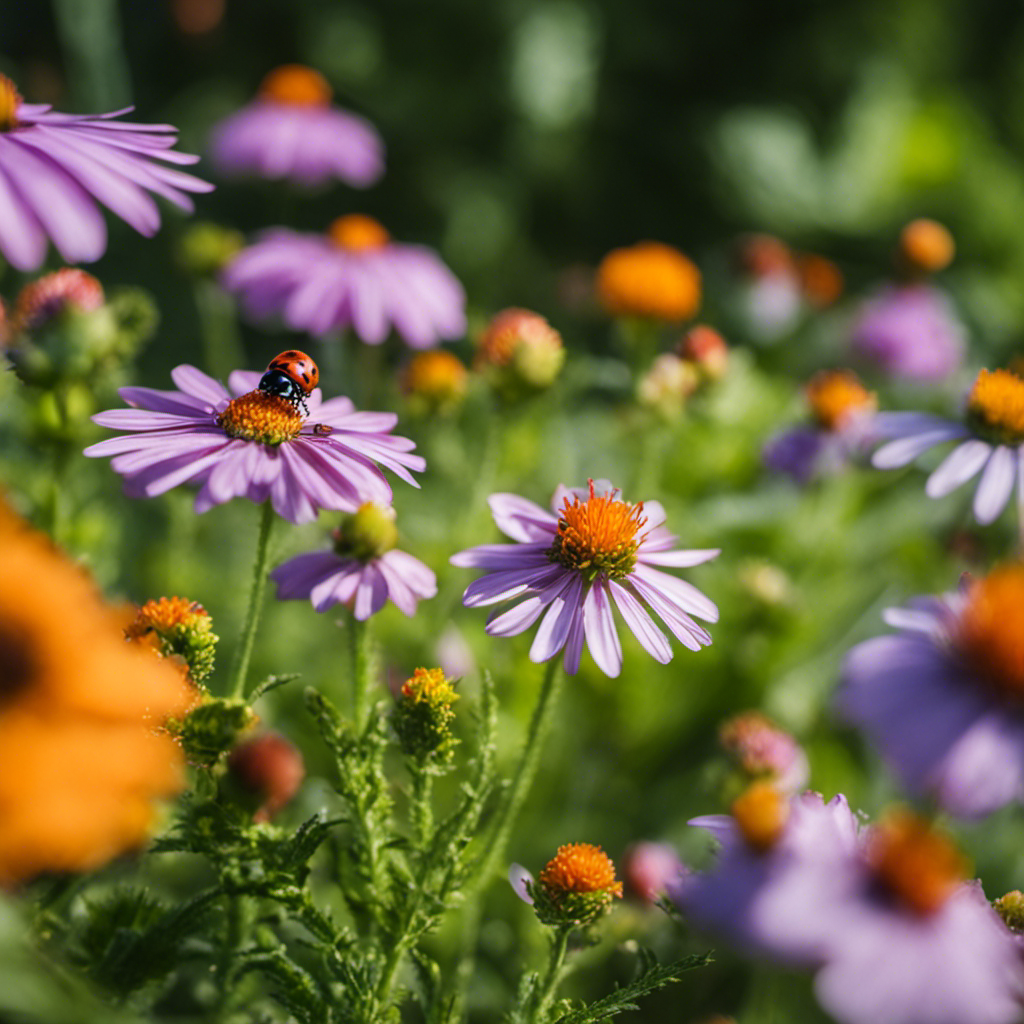
Invite beneficial insects into your organic garden to naturally control pests and promote a healthy ecosystem.
One effective way to encourage pollinator conservation and the introduction of pest predators is by creating a welcoming environment for these helpful insects. Consider planting flowers that attract pollinators, such as bees and butterflies. These insects not only play a vital role in pollinating your plants but also contribute to the overall health of your garden.
Additionally, you can introduce natural pest predators like ladybugs, lacewings, and praying mantises to control common garden pests. These insects feed on aphids, mites, and other harmful insects, reducing the need for chemical pesticides.
To attract and support these beneficial insects, provide them with water sources and shelter by incorporating native plants and using mulch.
Homemade Pest Repellents
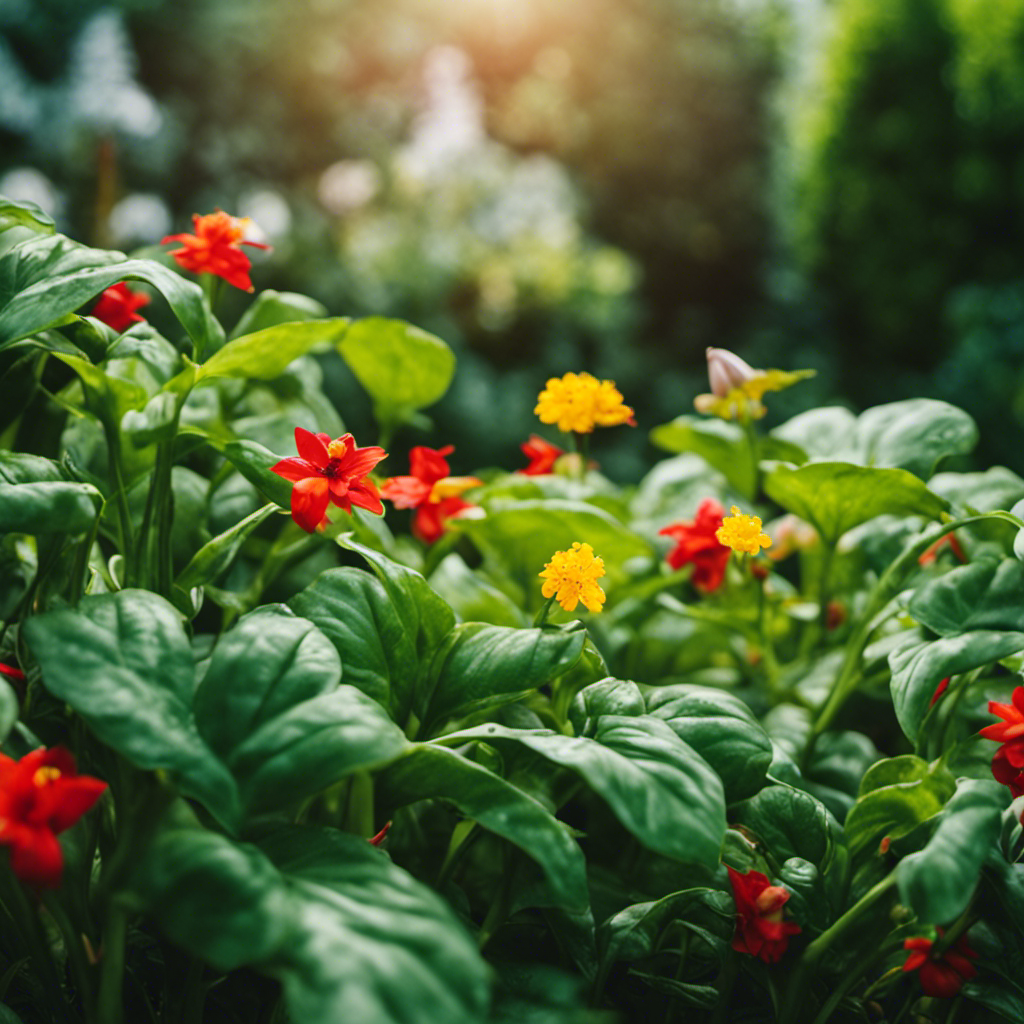
Natural Pest Repellents for Your Organic Garden
If you want to keep pests away from your organic garden without using harmful chemicals, homemade pest repellents are a great option. These DIY traps and deterrents can effectively protect your plants.
Here are four simple and effective homemade pest repellents you can try:
-
Garlic spray: Make a mixture by blending garlic cloves with water and then straining it. Spray this solution on your plants to repel pests like aphids and caterpillars.
-
Neem oil: Mix neem oil with water and add a few drops of dish soap. This solution can be sprayed on your plants to deter pests such as whiteflies and spider mites.
-
Cayenne pepper spray: Combine cayenne pepper with water and strain the mixture. Use this spray to repel pests like slugs and snails.
-
Coffee grounds: Spread used coffee grounds around your plants to repel pests like ants and snails.
Physical Barriers
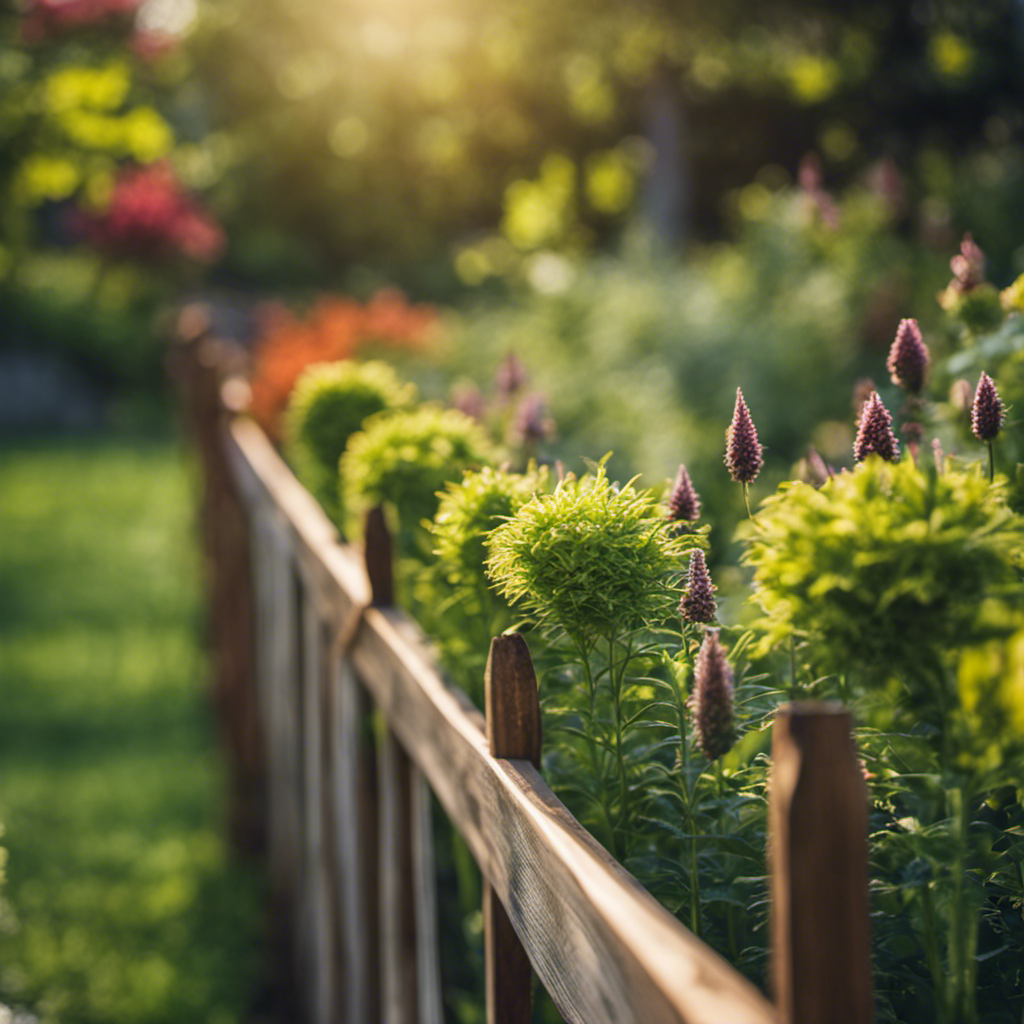
Are you wondering how to protect your organic garden from pests without using harmful chemicals?
One effective method is to use physical barriers. These barriers act as obstacles that prevent pests from reaching your plants. A popular technique is vertical gardening, where plants are grown vertically on trellises or fences. This not only saves space but also makes it more difficult for pests to access your plants.
Another option is to choose insect-resistant plants that naturally repel pests. These plants release chemicals or have physical characteristics that deter insects. Examples include marigolds, lavender, and mint.
Crop Rotation
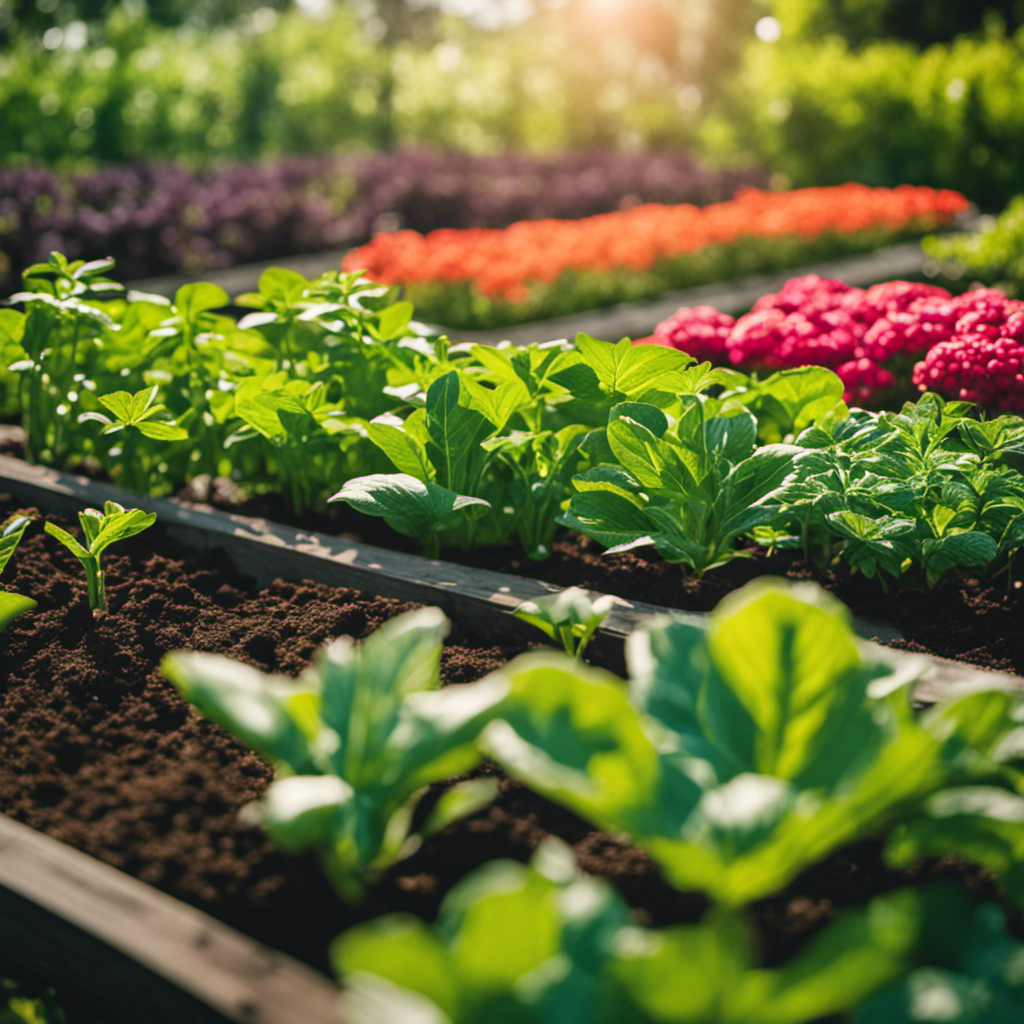
One effective method to protect your organic garden from pests is by implementing crop rotation. Crop rotation involves planting different crops in different areas of your garden each season to naturally control pests. Here are four reasons why crop rotation is beneficial for organic gardens:
-
Soil management: Crop rotation helps maintain soil health by preventing the buildup of pests and diseases that target specific crops. By rotating crops, you disrupt the life cycles of pests, reducing their numbers and minimizing the risk of infestations.
-
Pest control: Different crops attract different pests. By rotating crops, you can break the cycle of pests that target a specific crop, making it more difficult for them to establish and spread in your garden.
-
Nutrient balance: Different crops have different nutrient requirements. Rotating crops helps maintain a balanced nutrient profile in the soil, preventing nutrient imbalances and deficiencies.
-
Pest-resistant varieties: By rotating crops, you have the opportunity to choose pest-resistant varieties for each new crop you plant. This further enhances pest control and reduces the need for chemical interventions.
Implementing crop rotation in your organic garden is a practical and effective way to manage pests naturally and maintain a healthy, thriving garden.
Conclusion
Incorporating natural pest control techniques in your organic garden can help you maintain a healthy and thriving environment for your plants.
Did you know that companion planting can increase crop yield by up to 40%? By strategically placing certain plants together, you can deter pests and promote the growth of beneficial insects.
These simple and practical methods, such as using homemade pest repellents and physical barriers, can significantly reduce the need for harmful chemicals and promote a sustainable approach to gardening.
So, by embracing natural pest control, you can create a greener and more eco-friendly garden while ensuring the well-being of your plants.
